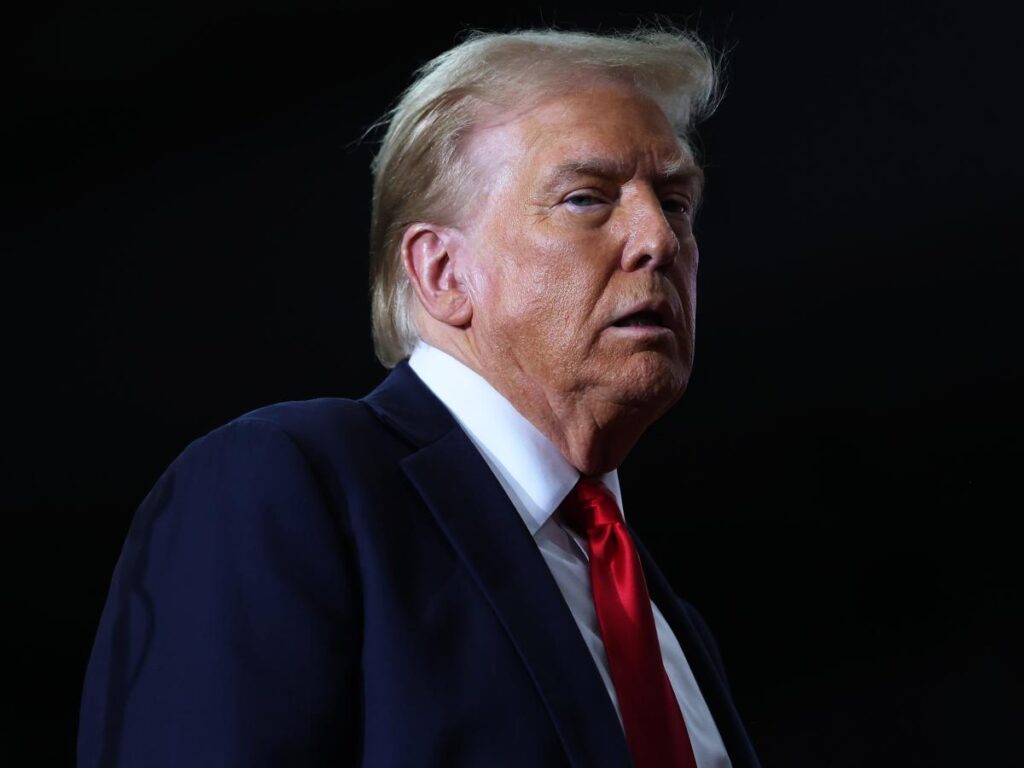On Tuesday, former President Donald Trump commented on Google’s ongoing antitrust challenges, emphasizing the tech giant’s significant influence while refraining from advocating for its breakup. In an interview with Bloomberg, Trump expressed concerns over Google’s power, stating, “We want to have great companies,” while stressing the importance of maintaining American technological leadership in the face of competition from China. His remarks came in light of a recent ruling by a federal judge which found that Google has illegally operated as a monopoly within its search business, leading the U.S. Department of Justice to consider seeking a breakup of the company. Although Trump acknowledged the company’s considerable power and influence, he stopped short of explicitly endorsing a breakup.
In his statements, Trump expressed both criticism and credit towards Google, suggesting the company has “a lot of power” but emphasizing that he believes in fostering large, successful enterprises within the United States. He alluded to conversations he had with Google leadership to voice his dissatisfaction, particularly claiming that search results were “rigged” against him. Trump’s discourse highlights the delicate balance politicians navigate when addressing the power of Big Tech: acknowledging its successes while confronting potential monopolistic behaviors. He framed his concerns within a broader narrative about national security and competition, stating, “Right now, China is afraid of Google,” which reflects his administration’s previous stance on technological rivalry with China.
Additionally, Trump’s comments touched upon his evolving viewpoint toward TikTok, which he initially sought to ban during his presidency. When quizzed about the platform, he described everything as a potential threat but acknowledged that sometimes one must “fight through the threats.” His varied stance on TikTok suggests a broader contemplation on the nature of digital competition and the complexities of engaging with platforms that hold vast amounts of user data and influence. It remains to be seen how these evolving perspectives intertwine with policy strategies surrounding tech regulation and competition.
The implications of Trump’s remarks extend beyond mere commentary; they may significantly impact ongoing regulatory actions against Google. Neil Chilson, a former acting chief technologist at the Federal Trade Commission (FTC), noted that if Trump were to return to power, his preferences would likely shape the direction of antitrust litigation against Google. Given that Trump would appoint key personnel—including the Attorney General in charge of antitrust matters—his influence could play a critical role in how the Department of Justice approaches these legal challenges, including potential remedies for the ongoing antitrust case against Google.
Trump’s critiques of Big Tech, particularly against Google and other Silicon Valley giants, have a history of being contentious. His threats to prosecute Google at the highest levels if he were to be elected, accusing the company of bias against him, exemplify these long-standing grievances. Google has consistently denied such allegations, asserting their search algorithms provide fair and unbiased results which reflect the broadened conversation happening online. The tense relations between Trump and major tech figures, including longtime rival Mark Zuckerberg of Facebook, underscore a broader narrative regarding the accountability and influence of digital platforms on political discourse.
As Google faces broad scrutiny not only for its search practices but also for allegations of monopolistic behavior in its advertising business, Trump’s comments reflect an ongoing debate in American politics and society about the role of large tech companies. With separate lawsuits poised to unfold in the coming months, including closing arguments related to Google’s advertising practices, the outcomes of these legal challenges could significantly reshape the landscape of digital competition. Ultimately, the intersection of political influence, judicial decisions, and public sentiment surrounding Big Tech will remain a pivotal point of discussion as the country navigates its competitive future.

